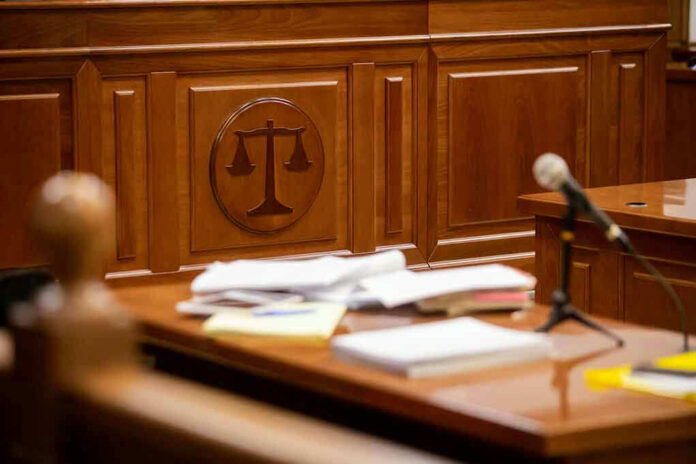
When an appeals court overturns a conservative influencer’s criminal conviction for posting memes—while the federal government fumbles to define what’s “dangerous speech”—you’ve got to wonder how far we’ve drifted from common sense in this country.
At a Glance
- Douglass Mackey, a conservative social media figure, was convicted for posting memes during the 2016 election that prosecutors claimed were aimed at suppressing Democratic votes.
- An appellate court has now overturned Mackey’s conviction, ordering his acquittal and calling the government’s case unproven.
- The Department of Justice’s attempt to criminalize online political speech using civil rights conspiracy law has failed in this instance.
- The case sets a major precedent about the boundaries of free speech and government power in policing online “disinformation.”
Court Tosses Meme Conviction: Free Speech or Free-for-All?
Douglass Mackey, labeled a right-wing provocateur by the mainstream press, became the center of a firestorm not for burning flags, but for posting satirical memes during the 2016 presidential contest. These memes, which mockingly suggested Hillary Clinton supporters could vote by text or social media post, were seized upon by prosecutors desperate to cast a net over what they deemed “election interference.” Their weapon of choice? A Civil War-era “conspiracy against rights” statute—because nothing says modern justice like stretching 19th-century law to muzzle current-day online commentary.
Brooklyn federal prosecutors secured a conviction in 2023, and Mackey was sentenced to seven months in prison. The move was hailed by election integrity hawks as a bold strike against “disinformation,” but conservative voices saw it for what it was: an obvious attempt to make an example out of someone who dared mock the left’s sacred cows. Mackey’s defense, led by Yaakov Roth, argued the case was pure government overreach—an attack on speech, not a criminal act. The facts on the ground? No one actually voted by text, and the memes were so absurd that anyone with two brain cells could see they were satire, not instructions.
Appeals Court: Government Overreached, Evidence Lacking
On July 9, 2025, the 2nd U.S. Circuit Court of Appeals delivered a blow to the DOJ’s crusade, overturning Mackey’s conviction and ordering his acquittal. The court found the trial evidence simply didn’t support the government’s theory that Mackey had engaged in a conspiracy to deprive people of their constitutional rights. In other words, the feds failed to prove that posting a meme equals a criminal plot to steal anyone’s vote.
This ruling isn’t just a technicality—it’s a direct rebuke to a government itching to criminalize speech that doesn’t fit their preferred narrative. Mackey celebrated his legal victory online, thanking his supporters and hinting at possible legal action against those who railroaded him. Meanwhile, the Brooklyn U.S. Attorney’s office clammed up, offering no comment on their stinging defeat.
The Chilling Test Case: Where Does Free Speech End?
This case is a flashing warning sign for anyone who cares about free speech, especially in an era when the left seems hell-bent on criminalizing dissent. The DOJ’s use of a vague conspiracy statute to go after memes sets a precedent that could chill online political discussion nationwide. If a joke or a meme can land you in federal court, what’s next? Satirical newspaper cartoons? Parody TV sketches?
Legal scholars and free speech advocates have called this a landmark case, signaling that the government’s ability to police so-called “disinformation” has limits—at least for now. Election security activists, predictably, are wringing their hands, fearing the decision will embolden trolls and meme-makers everywhere. But the bigger picture is clear: the boundaries of the First Amendment are not for bureaucrats to redraw every time they’re offended by a joke or a jab at their favorite politician.
What This Means for the Future: Speech, Satire, and Government Power
The immediate impact is that Mackey walks free and the DOJ gets a lesson in the limits of its power. Long-term, this decision makes it harder for prosecutors to use civil rights conspiracy laws as a cudgel against online speech—even if that speech is tasteless, provocative, or pointedly partisan. The ruling also puts social media platforms on notice: government pressure to censor “misinformation” can’t simply override the Constitution.
The American public, especially those who value the core freedoms enshrined in the Constitution, should be paying attention. If this case had gone the other way, it would have opened the door to prosecuting anyone who posts political satire or edgy commentary that the government doesn’t like. The left’s appetite for controlling speech online has hit a legal roadblock—and not a moment too soon. The government’s job isn’t to police memes; it’s to protect the rights of citizens, even when that means tolerating speech they hate.












